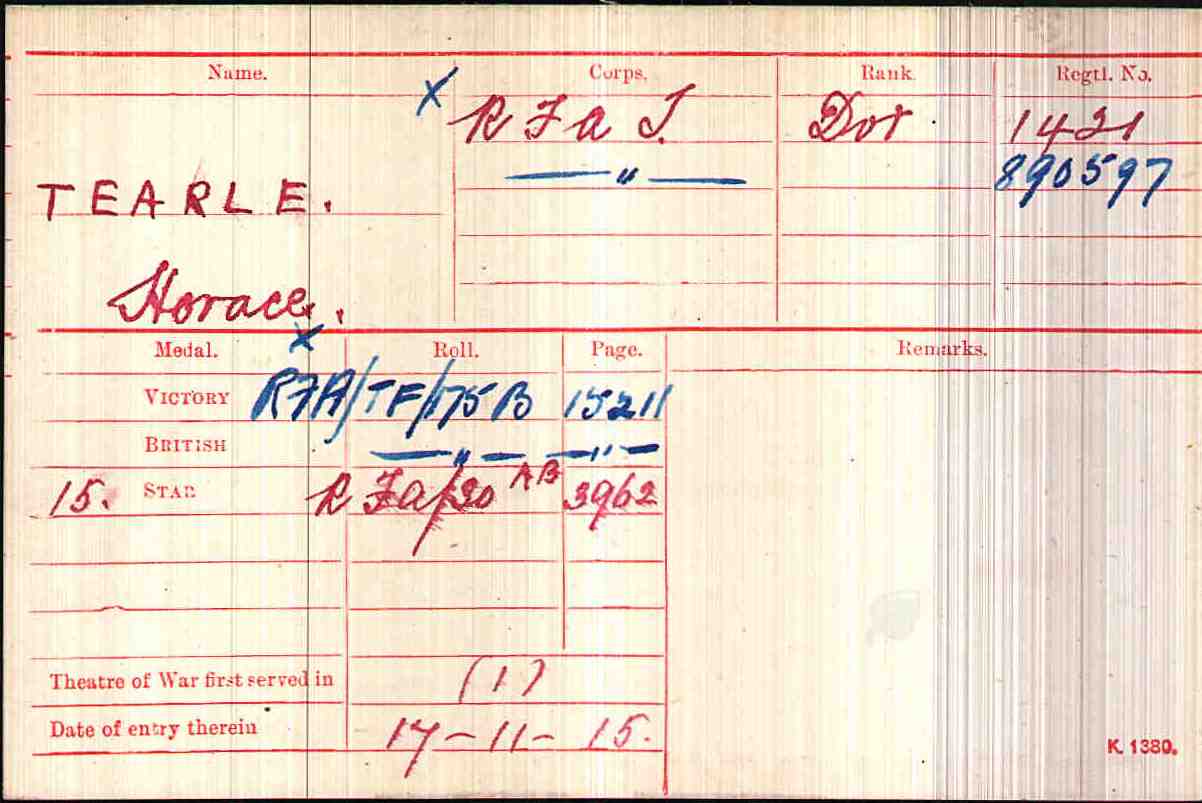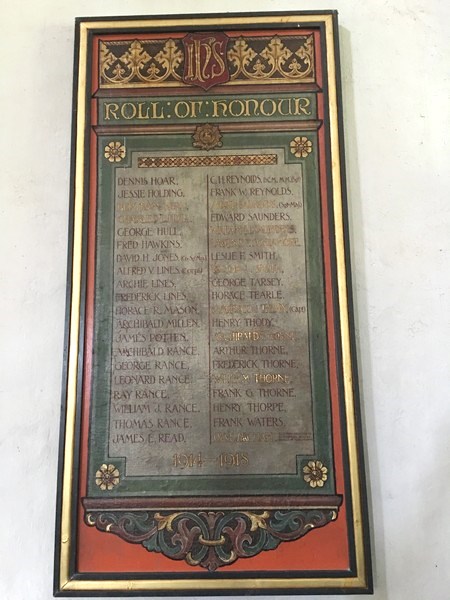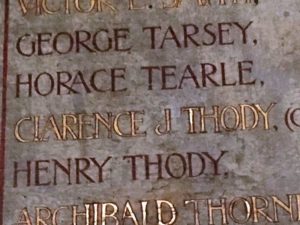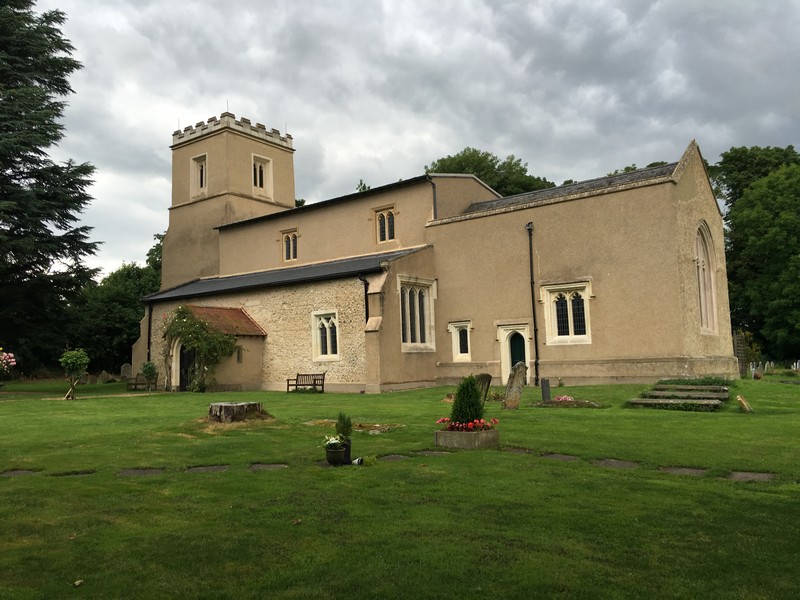National Roll of the Great War had this to say about Horace:
Horace fought in some of the bloodiest and most brutal battles of the Great War. Look at the names. Ypres (a town in Belgium, called Wipers by the soldiers who fought there) the Somme, a beautiful, gently rolling farming countryside in Pas-de-Calais, France where more than 19,000 men on the Allied side were killed on just the first day of the battle. These were vast killing fields where upwards of 500,000 men of both sides fought each other to a standstill and poured artillery fire and machinegun spite at each other in the hope that something they were doing would finally work, while their leaders tried to find an action that would finally break the deadlock. Horace joined early in the war, and survived. We know nothing about his wounds.
Horace’s parents were John Tearle 1863 of Edelsborough and Ellen nee Dyer. Here is their marriage in 1884:
You can see that John could not write, but Ellen Dyer could. Ann Maria Tearle was John’s younger sister, and in 1885 she would marry the Arthur Rollings who had joined her as a witness at her brother’s wedding.
John’s parents were George Tearle 1831 of Eaton Bray, just a few hundred metres from Edlesborough. and Hannah Maria nee Janes. George’s parents were Jabez Tearle 1792 of Northall, a hundred metres across a field, and Mary nee Green. Jabez’ parents were William Tearle 1749 of Stanbridge and Mary nee Prentice. This means that Horace is on the branch of William 1749. This branch has some of the most famous Tearle names ever, including Sir Godfrey Tearle the Shakespearean and movie actor, and a long and glorious tradition of military service. Horace was in very good company. His elder brother Henry Charles Tearle 1887 had joined the Royal Fusiliers, and his younger brother William Samuel Tearle 1894 had joined the Royal Field Artillery, although much later than Horace had. Henry and Horace had received written recognition of their efforts in the National Roll of the Great War, but for some reason, William Samuel had not.
Here is the medals card that determined the service medals that Horace received:
He would have received the medals, in the post, during 1922.
In 1919, Horace married Ethel L Lake and so far as I know, they had one child, Herbert J Tearle 1930 in Bury St Edmonds, Suffolk. Here he is in 1933, amongst other Tearle families at addresses in Hemel Hempstead:
The first name is probably Alexander Tearle 1898, the second is possibly Horace, the third is most likely Henry Charles 1887, but I do not know who Daisy E is.
Horace died in Dacorum (the town of Hemel Hempstead lies in the district of Dacorum) in 1979, aged 85, and we hope that in the years after the Great War, Horace was able to piece together those parts of his character that make life worth living, for himself, and for his family.
In his own lifetime, Horace saw a grateful village honour his contribution to the effort to defeat the Germans. In Studham Church, Bedfordshire, there is a Roll of Honour. The names in gold are those who lost their lives and the names in red are those who were thankfully welcomed home. Horace is listed in red:
I have reproduced here that part of the Roll that records his name:
We thank Paul and Edith Tearle of Studham for bringing this to our attention, and for taking us to the church to view this most touching of memorials.





